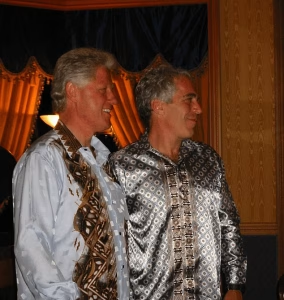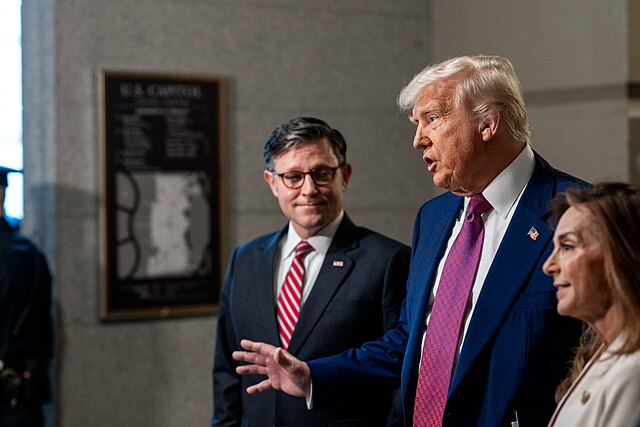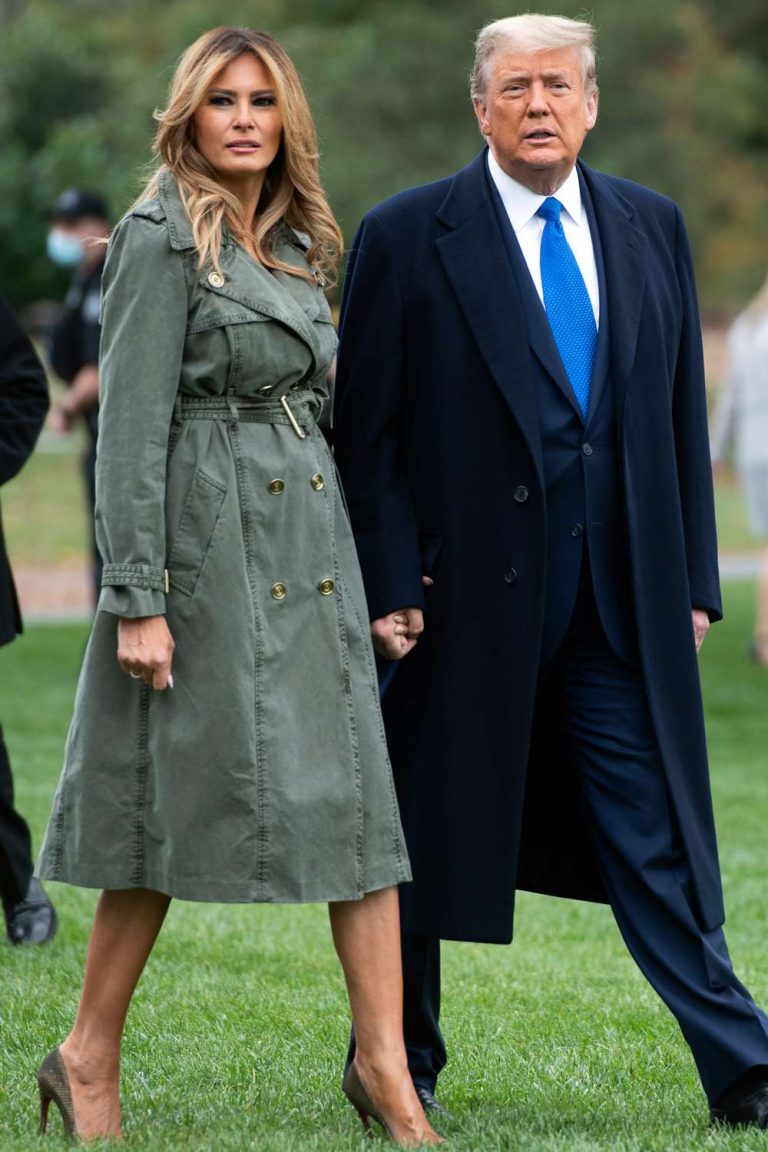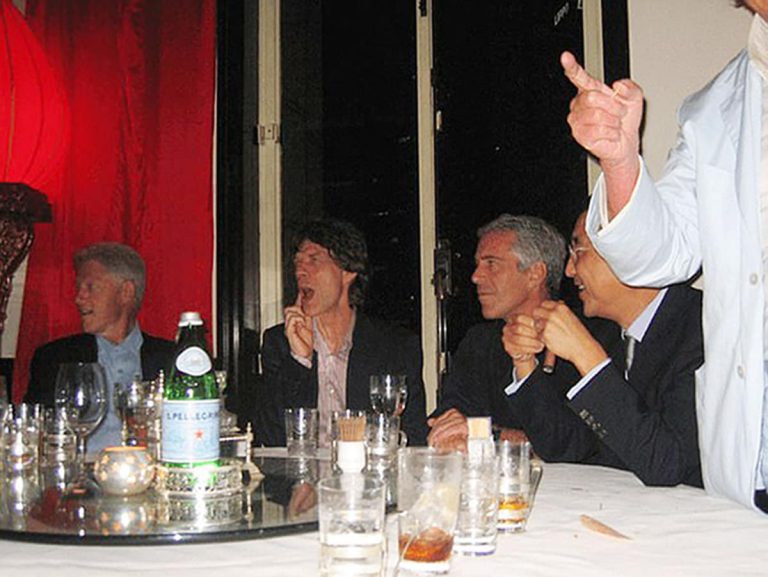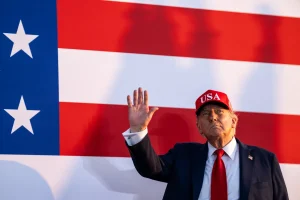House Speaker Mike Johnson addressed questions Thursday about comments he made last week suggesting President Donald Trump may have played a role in assisting authorities during the Jeffrey Epstein investigation. The clarification comes amid heightened attention to the case and political disputes surrounding its coverage.
Johnson spoke to reporters, including CNN’s Manu Raju, in response to inquiries about why President Trump has referred to aspects of the Epstein case as a “hoax.” The speaker emphasized that Trump’s criticisms are directed toward political exploitation of the case rather than minimizing the seriousness of Epstein’s crimes.
Initial Remarks and Public Reaction
Last week, Johnson made statements that some interpreted as implying Trump acted as an FBI informant in the Epstein investigation. These comments were reported by various outlets and quickly became the subject of media attention and social media discussion.
Johnson told reporters on Thursday, “What he’s talking about is the Democrats who are doing this with impure motives. If they cared so much about this, why didn’t they do something during the four years of the Biden administration when the Biden DOJ had all the records?” He framed Trump’s concerns as a response to political maneuvering rather than a denial of wrongdoing.
The remarks were made in the context of the broader political debate over Epstein’s case, including the handling of records, public scrutiny, and the role of high-profile individuals associated with Epstein.
Emphasizing Trump’s Condemnation of Epstein
Johnson stressed that Trump has consistently condemned Epstein’s actions and did not seek to excuse or minimize them. “He has never said or suggested or implied — I’ve talked to him about this many times, many times. He is horrified. It’s been misrepresented. He’s not saying that what Epstein did is a hoax. It’s a terrible, unspeakable evil. He believes that himself,” Johnson said.
According to Johnson, Trump took steps years ago to distance himself from Epstein. “When he first heard the rumor, he kicked him out of Mar-a-Lago,” Johnson explained. He also suggested that Trump cooperated with authorities at the time, describing him as “an FBI informant to try to take this stuff down,” although he clarified that this language reflected claims made by victims’ attorneys rather than his own independent assertion.
Clarifying the Intent
After questions arose about his earlier statements, Johnson issued a formal clarification to the Washington Post. In the statement, he reiterated that he was echoing comments made by victims’ attorneys regarding Trump’s actions more than a decade ago.
“The Speaker is reiterating what the victims’ attorney said, which is that Donald Trump, who kicked Epstein out of Mar-a-Lago, was the only one more than a decade ago willing to help prosecutors expose Epstein for being a disgusting child predator,” Johnson’s statement read.
Johnson’s clarification underscores the distinction between Trump’s alleged cooperation with authorities and any political narrative suggesting personal culpability. He emphasized that the president’s involvement, as described by attorneys, was aimed at supporting transparency and assisting law enforcement efforts.
Trump’s Position on Transparency
Throughout the discussion, Johnson noted that Trump remains committed to full transparency regarding the Epstein case. The president reportedly expressed sympathy for victims and a desire to release all relevant records.
Johnson said, “The president knows and has great sympathy for the women who have suffered these unspeakable harms. It’s detestable to him. He and I have spoken about this as recently as 24 hours ago. What he’s talking about is the Democrats who are doing this with impure motives … they’re creating a hoax, just like they did with the Russian dossier, because they think it’s going to somehow be mud thrown on him. It’s not. He has no culpability in this thing at all. The president has clean hands. He wants all the records out. He has told me that himself.”
The remarks suggest that Trump views political commentary surrounding Epstein as potentially misleading or weaponized against him, rather than reflective of his actual involvement.
Media Coverage and Public Attention
The Epstein case continues to attract extensive media coverage, especially given the involvement of high-profile figures and the ongoing political disputes regarding how information has been managed and reported. Johnson’s remarks, along with the subsequent clarification, reflect the heightened sensitivity around how public statements about the case are interpreted.
Analysts note that clarifying comments from lawmakers can play a critical role in shaping public understanding of complex legal and political issues. In this instance, Johnson’s statement aimed to prevent misrepresentation of Trump’s actions while reaffirming the seriousness of the crimes committed by Epstein.
Broader Implications
The exchange also highlights the tension between legal proceedings, media coverage, and political narrative. As high-profile cases involving historic sexual abuse are discussed in public forums, statements by politicians can be interpreted in multiple ways, potentially influencing public perception and political debate.
Johnson’s clarification serves as an example of the careful messaging that often accompanies discussions of controversial or sensitive topics, particularly those that involve well-known political figures. By reiterating that his comments reflected victims’ attorney perspectives, Johnson aimed to maintain focus on the factual record while mitigating misinterpretation.
Historical Context
Jeffrey Epstein, a wealthy financier, faced numerous allegations of sexual abuse and exploitation of underage girls over several decades. A non-prosecution agreement in 2008 and subsequent federal investigations drew scrutiny from both the public and media, raising questions about accountability and the role of individuals in positions of influence.
Trump’s connection to Epstein, primarily through social and business circles prior to distancing himself, has been a point of public and media attention. Statements like those from Johnson attempt to clarify the extent and nature of any involvement, emphasizing cooperation with law enforcement rather than personal complicity.
Political Dimensions
The discussion of Trump’s actions is inseparable from broader political discourse. Johnson and others have framed the president’s comments as responses to perceived political exploitation of Epstein’s case by opponents. Critics, meanwhile, caution that framing serious criminal investigations in political terms risks undermining public confidence and diverting attention from accountability.
This dynamic illustrates the ongoing intersection of criminal investigations, public perception, and partisan politics in high-profile cases. As new information emerges or is clarified, political figures often must navigate careful communication strategies to avoid misrepresentation while maintaining public engagement.
Moving Forward
The clarification by Speaker Johnson is likely to remain a reference point as media outlets and political commentators assess both the Epstein case and Trump’s statements about it. By highlighting the distinction between criminal accountability, victim advocacy, and political commentary, Johnson sought to provide context to earlier remarks that may have been misinterpreted.
The case continues to influence public conversation, with potential implications for ongoing political debates and future reporting on high-profile legal matters. Transparency, the role of victims’ attorneys, and the accuracy of public statements remain central to discussions about Epstein and associated figures.
Conclusion
Speaker Mike Johnson’s clarification serves to separate political commentary from factual claims regarding President Trump’s involvement in the Epstein case. According to Johnson, Trump acted to support law enforcement efforts, condemned Epstein’s crimes, and has consistently advocated for transparency.
The exchange underscores the challenges of public discourse when legal, political, and media narratives intersect. For lawmakers, journalists, and the public alike, accurately understanding statements and their context is essential for informed debate.
Johnson’s remarks and subsequent clarification aim to ensure that the discussion around Trump and Epstein remains grounded in factual accounts, while highlighting the broader political and legal dynamics at play.

James Jenkins is a celebrated Pulitzer Prize-winning author whose work has reshaped the way readers think about social justice and human rights in America. Raised in Atlanta, Georgia, James grew up in a community that instilled in him both resilience and a strong sense of responsibility toward others. After studying political science and creative writing at Howard University, he worked as a journalist covering civil rights issues before dedicating himself fully to fiction. His novels are known for their sharp, empathetic portraits of marginalized communities and for weaving personal stories with broader political realities. Jenkins’s breakout novel, Shadows of Freedom, won national acclaim for its unflinching look at systemic inequality, while his more recent works explore themes of identity, resilience, and the fight for dignity in the face of oppression. Beyond his novels, James is an active public speaker, lecturing at universities and participating in nonprofit initiatives that support literacy and community empowerment. He believes that storytelling is a way to preserve history and inspire change. When not writing, James enjoys jazz music, mentoring young writers, and traveling with his family to explore cultures and stories around the world.



